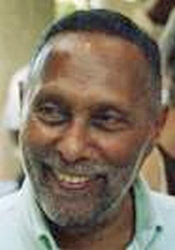by ROBIN BLACKBURN
 Stuart Hall, the founding editor New Left Review and sociologist SOURCE/Wikipedia
Stuart Hall, the founding editor New Left Review and sociologist SOURCE/Wikipedia
The renowned cultural theorist Stuart Hall, who died on 10 February, was the first editor of nlr. Stepping down in 1962, he continued to play an outstanding role in the broader New Left for the rest of his life. Stuart made decisive contributions to cultural theory and interpretation, yet a political impulse—involving both a political challenge to dominant cultural patterns and a cultural challenge to hegemonic politics—pervades his work. His exemplary investigations came close to inventing a new field of study, ‘cultural studies’; in his vision, the new discipline was profoundly political in inspiration and radically interdisciplinary in character. Wrestling with his own identity as a West Indian-born anti-imperialist in Oxford, London and Birmingham, he evolved into his own style of Marxist. Author or co-author of a hundred texts, subject of scores of interviews, keynote speaker at many dozens of conferences, co-founder of three journals, he managed to be strikingly original and always distinctively himself. He bore nearly two decades of illness with amazing stoicism, exhibiting a tenacious hold on life and intense curiosity about the future; and helped in all this by his companion of nearly fifty years, the historian Catherine Hall.
…
In his 1995 Walter Rodney lecture, published in nlr 209, Stuart wrote about how struck he was by Jamaica’s cultural transformation: ‘When I left Jamaica it was a society which did not and could not have acknowledged itself to be largely black.’ When he returned three or four decades later:
“The biggest shock to me was listening to Jamaican radio. I couldn’t believe my ears that anyone could be quite so bold as to speak patois, to read the news in that accent. My entire education, my mother’s whole career, had been specifically designed to prevent anybody at all, and me in particular, from reading anything of importance in that language. Of course you could say all kinds of other things, in the small interchange of everyday life, but important things had to be said, goodness knows, in another tongue.” [13]
New Left Review for more
